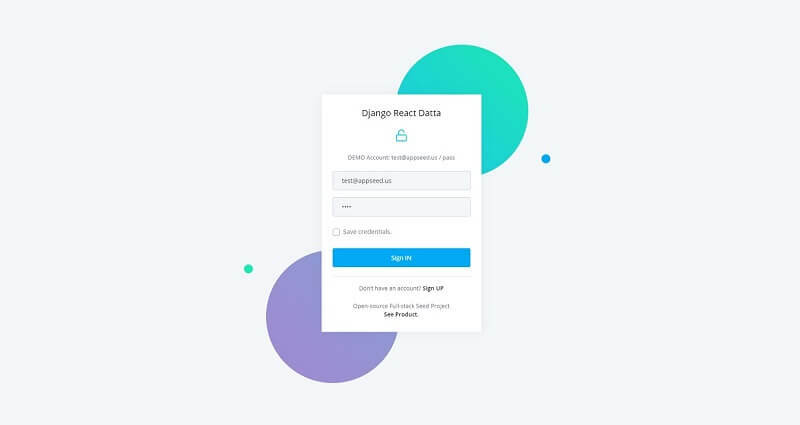59
Django React - Datta Able (Free Full-stack Product)
Hello Coders,
This article presents an open-source full-stack product that uses a decoupled React UI and a simple Django Rest API for authentication. This simple starter might help beginners to accommodate faster with a full-stack pattern by coding simple features on top of existing code. Sources are available on Github under the MIT License.
Thanks for reading! - Content provided by App Generator.

This free product can be used in many ways: the first one might be educational. Beginners can clone the project and experiment the build and code simple things on top of both parts of the project: backend and frontend. Other way is to use the product in production and reuse the features for a hobby or commercial end-product.
The backend is a simple Django API server built with SQLite, Django REST API and
JSON Web Tokens and Docker support. Product requirements:
Step #1 - Clone the sources
$ git clone https://github.com/app-generator/api-server-django.git
$ cd api-server-djangoStep #2 - Create a virtual environment
$ virtualenv -p python3 venv
$ source venv/bin/activateStep #3 - Install dependencies (via PIP)
$ pip install -r requirements.txtStep #3 - Start the API server
$ python manage.py migrate
$ python manage.py runserver 5000At this point, the API server should be up and running.
Product comes with
Docker configuration and the set up is considerably faster:$ docker-compose up -d --buildTo built the UI a decent Node JS version is requited (>= 12.x) and also GIT to clone/download the project from the public repository.
Step #1 - Clone the project
$ git clone https://github.com/app-generator/react-datta-able-dashboard.git
$ cd react-datta-able-dashboardStep #2 - Install dependencies via NPM or yarn
$ npm i
// OR
$ yarnStep #3 - Start in development mode
$ npm run start
// OR
$ yarn startAt this point, we should see the React UI running in the browser. By default guest users are redirected to the login page. Once we create a new user and successfully authenticate, the app unlocks all private pages:
Django React Datta - Login Page

Django React Datta - Widgets page

Thanks for reading! For support and more resources, please access:
59
